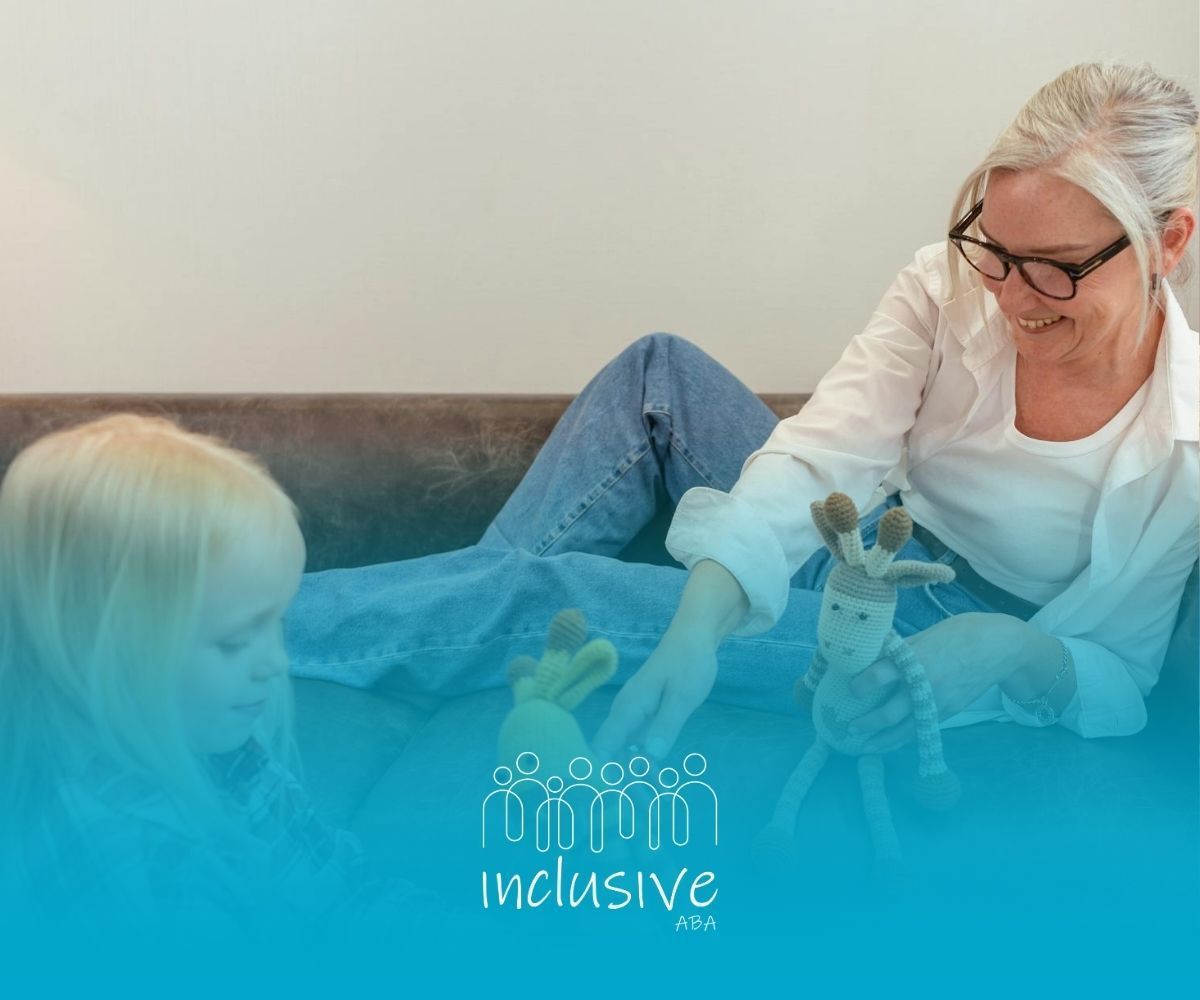Nebraska Autism Statistics: A Closer Look at the Numbers
Autism Prevalence in Nevada
Delving into the statistics and support structures for Autism Spectrum Disorder (ASD) in Nevada sheds light on how the state is addressing the needs of individuals and families impacted by autism.
Overview of Autism in Nevada
In Nevada, the prevalence of autism has been on a noticeable rise, in line with national trends. According to the Centers for Disease Control and Prevention (CDC), the current national estimate is that 1 in 54 children is diagnosed with ASD. This increase in diagnosis is attributed to improved diagnostic criteria and increased awareness of the disorder.
To better understand autism prevalence in Nevada, it's vital to look at state-specific data that reflect the local community's needs. Statewide surveys and health department records indicate that numerous children and adults in Nevada are living with autism, highlighting the importance of targeted support services.
| State | Prevalence Rate |
|---|---|
| Nevada | 1 in 54 children |
Support Services in Nevada
Nevada offers various support services to assist individuals with autism and their families. These services span early intervention programs, educational support, and community resources, ensuring comprehensive care and assistance.
Early Intervention
Nevada's early intervention programs are designed for children from birth through age three who exhibit developmental delays. These programs provide developmental evaluations, individualized family service plans (IFSPs), and various therapies such as speech therapy, occupational therapy, and physical therapy.
Educational Support
Education for children with autism is supported through individualized education programs (IEPs) that cater to each child's unique learning needs. Specialized teachers, aides, and tailored curriculum adjustments are provided to ensure children with autism receive the support they need in school settings.
Community Resources
Community resources in Nevada play a crucial role in supporting families and individuals affected by autism. Organizations like the Autism Society of Nevada offer support groups, advocacy, and access to information and resources that help families navigate the challenges associated with autism.
For more on autism prevalence in other states, visit our related articles on Colorado autism rates and Nebraska autism prevalence.
Additional Support Programs
Several state and non-profit organizations are dedicated to supporting individuals with autism. They offer:
- Respite Care: Providing temporary relief for primary caregivers.
- Social Skills Training: Helping individuals develop critical social interactions.
- Job Training and Employment Services: Enabling adults with autism to find and maintain employment.
| Support Type | Description |
|---|---|
| Early Intervention | Evaluations, IFSPs, various therapies |
| Educational Support | IEPs, tailored curriculum, specialists |
| Community Resources | Support groups, advocacy, information |
To learn more about how other states are supporting their communities, visit our sections on Nebraska autism awareness and Colorado autism research.
Autism Statistics in Nebraska
Nebraska provides critical data on autism prevalence and offers diverse support programs tailored to meet the needs of individuals with Autism Spectrum Disorder (ASD) and their families.
State-Specific Data
The prevalence of autism in Nebraska has been on the rise, reflecting national trends. Factors contributing to this increase include improved diagnostic criteria and heightened awareness among healthcare professionals.
Autism Prevalence in Nebraska (Per 1,000 Children)
Data from Level Ahead ABA
The increase in ASD cases emphasizes the need for a strong support system and highlights the importance of early intervention and access to diagnostic services in the state. Efforts to enhance autism programs and introduce new initiatives demonstrate Nebraska's commitment to meeting the diverse needs of its residents with ASD.
Support Programs in Nebraska
Nebraska offers a range of support services for individuals with autism and their families. These services are designed to aid in the development and independence of individuals with ASD.
Key Support Services
- Early Intervention Programs: These programs focus on children who have been newly diagnosed with autism, providing essential support during the critical early years.
- Vocational Training: Training programs for adults help prepare them for employment, promoting independence and self-sufficiency.
The Autism Society of Nebraska (ASN), founded in 1975, is the state's oldest and largest autism organization. ASN provides vital support networks in Omaha and greater Nebraska, focusing on both awareness and comprehensive support.
Nebraska's data on autism, coupled with its robust support services, demonstrates the state's commitment to enhancing the lives of individuals with autism and their families. The growing prevalence of autism in Nebraska underlines the necessity for ongoing investment in research, early intervention programs, and continued awareness to ensure timely diagnosis and appropriate support.
Understanding Autism in Colorado
Autism Landscape in Colorado
Colorado has been making strides in understanding and addressing Autism Spectrum Disorder (ASD) within its community. With a rising awareness and commitment to supporting individuals with autism, the state has developed various initiatives and resources that cater to the needs of children and adults on the spectrum.
The prevalence of ASD in Colorado reflects national trends, with increased recognition and diagnosis rates over the years. This rise can be attributed to better awareness, improved diagnostic criteria, and enhanced reporting systems. Colorado's autism rate is continuously monitored to ensure that the needs of the autism community are met effectively.
One of the notable statistics is the consistent increase in autism diagnoses, with recent data showing significant improvements in early detection and intervention. Efforts to continue these trends include expanding community education about autism and providing more widespread access to diagnostic services.
The following table provides an overview of autism rates in Colorado:
| Year | Autism Prevalence (per 1,000 children) |
|---|---|
| 2010 | 1 in 110 |
| 2014 | 1 in 68 |
| 2020 | 1 in 54 |
Community Resources in Colorado
Colorado offers a variety of community resources aimed at providing support and services for individuals with autism and their families. These services range from early intervention programs for young children to vocational training and support for adults.
Early Intervention Programs
Early intervention is crucial for children diagnosed with ASD. Colorado has several programs designed to address the developmental needs of children from birth to age three. These programs provide essential services such as speech therapy, occupational therapy, and behavioral interventions, which can significantly improve outcomes.
Educational Support
The state also provides support within the educational system. Special education programs tailored to the needs of students with autism are available, ensuring they receive the appropriate accommodations and resources to succeed academically. Educators and school personnel play a vital role in these initiatives, fostering an inclusive learning environment.
Adult Services
For adults with autism, Colorado offers resources such as vocational training and employment support. These programs help individuals with autism develop job skills and find meaningful employment, promoting independence and self-sufficiency.
Community Organizations
Several community organizations and support groups are dedicated to autism advocacy and support. These organizations provide a platform for individuals with autism and their families to connect, share experiences, and access valuable resources. Some notable organizations include:
- Autism Society of Colorado: Provides advocacy, education, and support for individuals with autism and their families.
- Firefly Autism: Offers therapeutic services and support for children and adults with autism.
Understanding the autism landscape in Colorado involves recognizing the collective efforts of various stakeholders, including parents, educators, healthcare professionals, and community organizations. Their collaboration ensures that individuals with autism receive comprehensive support and opportunities to thrive.
By staying informed and utilizing these community resources, families and individuals with autism in Colorado can navigate their journey with confidence and support.
Factors Influencing Autism Prevalence
Several factors influence the prevalence of Autism Spectrum Disorder (ASD) in different regions, including diagnostic criteria and levels of awareness and education.
Diagnostic Criteria
One of the primary factors affecting the prevalence of autism is the diagnostic criteria used by healthcare professionals. The criteria have evolved over time, leading to changes in how autism is identified and categorized.
- Diagnostic Criteria Evolution: The Diagnostic and Statistical Manual of Mental Disorders (DSM) has gone through multiple revisions, impacting ASD diagnoses. The most recent version, DSM-5, combines various subtypes into a single diagnosis, which can broaden the number of individuals identified with autism.
- State-Level Variations: Each state may interpret and apply these diagnostic criteria slightly differently. For example, Nebraska follows national guidelines but may have state-specific considerations in practice. This can affect autism statistics in Nebraska.
Awareness and Education
Awareness and education within a community significantly influence autism prevalence rates. Higher awareness leads to more early diagnoses and better support systems.
- Community Awareness: Increased awareness campaigns and education programs help communities recognize autism symptoms earlier. Nebraska has seen improvements in early detection; however, the average age of diagnosis remains higher than recommended, suggesting further need for awareness among parents, teachers, and healthcare providers.
- Education Programs: Widespread educational efforts about autism can lead to earlier and more accurate diagnoses, impacting state-specific data. In Nebraska, ongoing efforts to educate the community about autism can improve early diagnosis statistics.
| Factors | Description |
|---|---|
| Diagnostic Criteria | Evolution from DSM-IV to DSM-5 |
| Community Awareness | Campaigns and education programs |
| Education Programs | Specialized training for parents, teachers, and healthcare providers |
By addressing these factors, we can better understand the nuances of autism prevalence within states like Nebraska, Nevada, and Colorado, ultimately enhancing support for the ASD community.
Addressing Autism Disparities
Geographic Discrepancies
Geographic disparities in autism rates can significantly impact the quality and accessibility of services available to individuals with Autism Spectrum Disorder (ASD). Nebraska and Georgia exhibit notable differences in autism prevalence at the county level, suggesting that variations exist not only within but between states as well. Understanding these discrepancies is essential for efficient resource allocation and tailored public health interventions.
| State | Urban Areas (%) | Rural Areas (%) | Total Prevalence (%) |
|---|---|---|---|
| Nebraska | N/A | N/A | N/A |
| Georgia | 1.23 | 0.95 | 1.10 |
Tailored Interventions
Addressing disparities in autism prevalence requires tailored interventions that consider the unique needs and barriers within specific regions. In Nebraska, efforts have been made to improve early autism detection. However, there is still room for enhancing awareness among parents, educators, and healthcare providers to ensure timely diagnosis and intervention support.
Effective tailored interventions may include:
- Increased Awareness Campaigns: Boosting knowledge about the importance of early detection and the signs of autism for parents, educators, and healthcare providers. Learn more about ongoing initiatives in Nebraska autism awareness.
- Community-Specific Resources: Developing and distributing resources applicable to both urban and rural communities, ensuring equitable access to support services.
- Targeted Training Programs: Implementing training programs for educators and healthcare providers to enhance diagnostic accuracy and promote early intervention.
Additionally, addressing racial and ethnic disparities in ASD diagnoses is crucial. For example, Georgia has reported differences in diagnosis rates related to race and ethnicity, highlighting the need to improve healthcare access and diagnostic practices across different demographics.
By focusing on tailored interventions and increasing awareness, the disparities in autism prevalence can be mitigated, leading to better outcomes for individuals with ASD in Nebraska and beyond.
Evolution of Autism Support
The evolution of autism support systems across states such as Nebraska continues to progress as awareness grows and diagnostic practices improve. This section delves into the emerging initiatives and ongoing awareness efforts that shape the landscape of support for individuals with autism spectrum disorder (ASD).
Emerging Initiatives
Emerging initiatives in Nebraska are designed to address the increasing prevalence of autism and the diverse needs of individuals with ASD. There is a concerted effort to enhance existing programs and introduce new initiatives. The initiatives aim to provide comprehensive support, including early intervention, educational resources, and therapeutic services.
Nebraska's initiatives include:
- Early Intervention Programs: Focused on providing support to children with ASD at an early age to improve developmental outcomes.
- Educational Training for Educators: Offering specialized training for teachers to better support students with autism in the classroom.
- Expanded Diagnostic Services: Increasing access to diagnostic services to ensure early and accurate identification of autism.
| Year | Number of Initiatives | Description |
|---|---|---|
| 2023 | 5 | Early intervention, therapist training |
| 2024 | 8 | Expanded diagnostics, parent resources |
| 2025 | 12 | Comprehensive support, education and therapy |
Ongoing Awareness Efforts
Ongoing awareness efforts in Nebraska are crucial for fostering understanding and acceptance of autism within the community. These efforts include public awareness campaigns, educational workshops, and community events designed to inform and support families, educators, and professionals.
Nebraska's commitment to autism awareness is reflected in several ways:
- Public Awareness Campaigns: Using media and community outreach to educate the public about autism and reduce stigma.
- Workshops and Seminars: Providing information and resources to parents, caregivers, and professionals on the latest research and support strategies.
- Community Events: Events that bring together families, individuals with autism, and professionals to share experiences and resources.
These awareness efforts are aligned with the latest autism statistics in Nebraska, which show a rise in autism cases in 2025. The increase underscores the necessity of continued investment in research, early intervention programs, and support services.
By focusing on emerging initiatives and ongoing awareness efforts, Nebraska aims to build a supportive and inclusive environment for individuals with autism and their families.
SOURCES:
https://shareomaha.org/nonprofit/autism-society-nebraska
https://autismcenterofnebraska.org/resources/
https://autismnebraska.org
https://pmc.ncbi.nlm.nih.gov/articles/PMC9128411/
https://pmc.ncbi.nlm.nih.gov/articles/PMC6732019/











